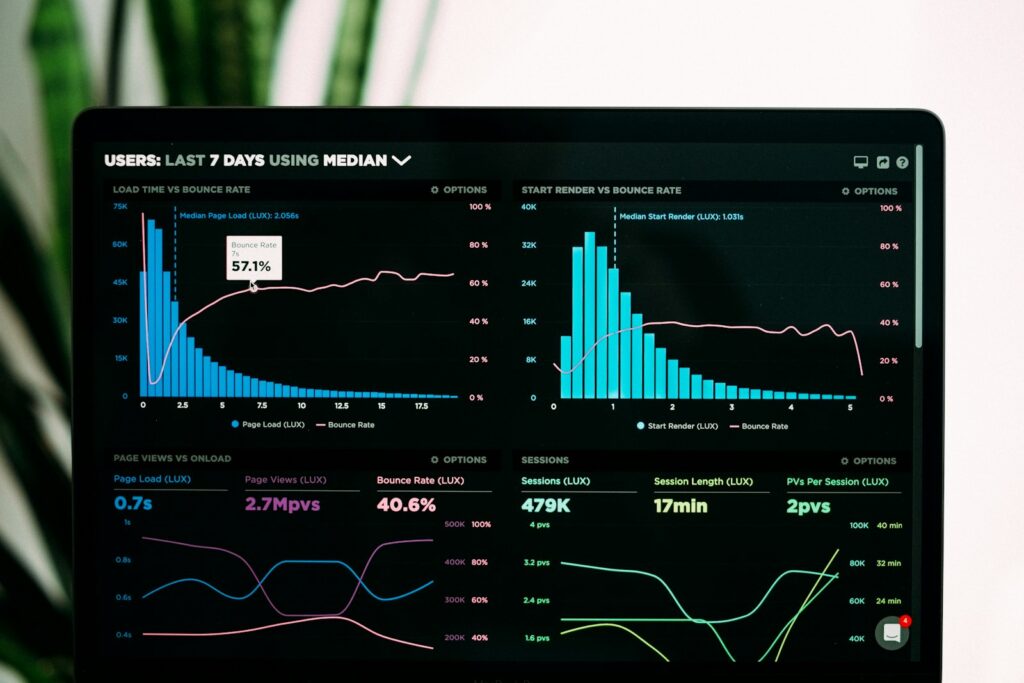Introduction
In today’s digital landscape, local SEO has become a crucial element for small businesses aiming to increase their visibility and attract nearby customers. With the surge in mobile searches and the rise of “near me” queries, understanding and implementing effective local SEO strategies can significantly impact your business’s growth and success. This guide delves into the essentials of local SEO, exploring why it matters, how to optimize your presence, and actionable tips to ensure your business stands out in local search results.
Table of Contents
- What is Local SEO?
- Why Local SEO is Crucial for Small Businesses
- How Search Engines Determine Local Search Rankings
- Key Components of Local SEO
- Google My Business Optimization
- Local Keywords and On-Page SEO
- NAP Consistency
- Local Citations and Listings
- Reviews and Ratings
- Mobile Optimization
- Strategies for Enhancing Your Local SEO
- Conducting Local Keyword Research
- Optimizing Your Google My Business Profile
- Building Local Citations
- Encouraging Customer Reviews
- Leveraging Local Content
- Implementing Local Backlinks
- Common Local SEO Mistakes to Avoid
- The Role of Social Media in Local SEO
- Measuring and Analyzing Local SEO Performance
- Case Studies of Successful Local SEO Implementation
- Future Trends in Local SEO
- Conclusion
1. What is Local SEO?
Local SEO (Search Engine Optimization) refers to the process of optimizing a business’s online presence to attract more local customers from relevant searches. Unlike general SEO, which focuses on ranking for broad, global keywords, local SEO targets customers who are searching for products or services within a specific geographic area.
Local SEO involves optimizing your business’s website, Google My Business profile, and other online assets to ensure they appear prominently in local search results and maps. This approach helps businesses connect with potential customers who are looking for services in their immediate vicinity.
2. Why Local SEO is Crucial for Small Businesses
For small businesses, local SEO is essential for several reasons:
- Increased Visibility: Local SEO helps your business appear in search results when potential customers are looking for services near them. This increased visibility can drive more foot traffic to your physical store or generate more local leads.
- Higher Engagement: Local searches often have a higher intent to purchase. When users search for businesses near them, they are more likely to visit, call, or make a purchase.
- Cost-Effective Marketing: Compared to traditional advertising methods, local SEO offers a more cost-effective way to attract local customers. It targets individuals who are already searching for your products or services.
- Competitive Edge: Implementing local SEO strategies can help small businesses compete with larger companies that may have more resources. By optimizing for local search, you can stand out in your community and build a loyal customer base.
3. How Search Engines Determine Local Search Rankings
Search engines like Google use various factors to determine local search rankings. Understanding these factors can help you optimize your local SEO efforts:
- Relevance: How well your business matches the search query. This involves using relevant keywords and having a business profile that aligns with what users are searching for.
- Distance: The proximity of your business to the searcher’s location. Google uses the user’s location to show nearby businesses.
- Prominence: The overall presence and reputation of your business. This includes online reviews, mentions, and backlinks.
Search engines combine these factors to provide users with the most relevant and useful local results.
4. Key Components of Local SEO
To effectively implement local SEO, focus on the following key components:
Google My Business Optimization
Google My Business (GMB) is a free tool that helps businesses manage their online presence across Google, including search and maps. Optimizing your GMB profile is crucial for local SEO success. Key steps include:
- Claiming and Verifying Your Listing: Ensure your business is claimed and verified to gain control over your GMB profile.
- Completing Your Profile: Fill out all information, including business name, address, phone number, website, hours of operation, and categories.
- Adding Photos and Videos: Upload high-quality images and videos to showcase your products, services, and location.
- Encouraging Customer Reviews: Prompt satisfied customers to leave reviews on your GMB profile. Respond to reviews to engage with customers and show that you value their feedback.
Local Keywords and On-Page SEO
Local keywords are essential for targeting specific geographic areas. Use tools like Google Keyword Planner or Ahrefs to find relevant local keywords. Incorporate these keywords naturally into:
- Title Tags and Meta Descriptions: Optimize your website’s title tags and meta descriptions with local keywords to improve visibility in search results.
- Headings and Content: Include local keywords in headings (H1, H2, etc.) and throughout your content to signal relevance to search engines.
NAP Consistency
NAP (Name, Address, Phone Number) consistency is crucial for local SEO. Ensure that your business name, address, and phone number are consistent across all online platforms, including your website, GMB profile, and local directories.
Local Citations and Listings
Local citations are online mentions of your business’s name, address, and phone number. Build citations on reputable local directories and websites to improve your local search visibility. Ensure that your business information is accurate and consistent across all platforms.
Reviews and Ratings
Customer reviews and ratings play a significant role in local SEO. Positive reviews can boost your local search rankings and attract more customers. Encourage customers to leave reviews on your GMB profile and other review sites, and respond to reviews to show engagement.
Mobile Optimization
With the increasing use of mobile devices for local searches, mobile optimization is crucial. Ensure that your website is mobile-friendly, with a responsive design that provides a seamless user experience on smartphones and tablets.
5. Strategies for Enhancing Your Local SEO
Implement the following strategies to enhance your local SEO efforts:
Conducting Local Keyword Research
Identify local keywords that potential customers use when searching for your products or services. Use keyword research tools to find terms with high search volume and relevance to your business. Incorporate these keywords into your website content, meta tags, and GMB profile.
Optimizing Your Google My Business Profile
Regularly update and optimize your GMB profile with accurate information, high-quality photos, and customer reviews. Use GMB features like posts and Q&A to engage with your audience and provide valuable updates.
Building Local Citations
Submit your business information to reputable local directories and citation sites. Focus on high-quality citations that have relevance and authority in your industry.
Encouraging Customer Reviews
Actively encourage satisfied customers to leave positive reviews on your GMB profile and other review platforms. Respond to reviews, both positive and negative, to demonstrate excellent customer service and build trust.
Leveraging Local Content
Create and share content that is relevant to your local audience. This could include blog posts about local events, news, or industry-related topics. Local content can help establish your business as a local authority and attract more local visitors.
Implementing Local Backlinks
Build backlinks from local websites and blogs to enhance your site’s authority and relevance. Seek opportunities for guest blogging, partnerships, and local sponsorships to acquire valuable local backlinks.
6. Common Local SEO Mistakes to Avoid
Avoid these common mistakes to ensure your local SEO efforts are effective:
- Inconsistent NAP Information: Ensure that your business’s name, address, and phone number are consistent across all online platforms.
- Neglecting Mobile Optimization: With mobile searches on the rise, ensure your website is mobile-friendly.
- Ignoring Reviews: Actively manage and respond to customer reviews to build trust and improve your local search rankings.
- Forgetting Local Keywords: Incorporate relevant local keywords into your content, meta tags, and GMB profile.
7. The Role of Social Media in Local SEO
Social media can complement your local SEO efforts by increasing brand visibility and engagement. Use platforms like Facebook, Instagram, and Twitter to:
- Share Local Content: Post updates about local events, promotions, and news to engage with your audience.
- Encourage Reviews: Direct followers to leave reviews on your GMB profile and other review platforms.
- Engage with Customers: Respond to comments and messages to build relationships and demonstrate excellent customer service.
8. Measuring and Analyzing Local SEO Performance
Track and analyze your local SEO performance using tools like Google Analytics and Google Search Console. Key metrics to monitor include:
- Local Search Traffic: Track the number of visitors coming from local searches and their behavior on your site.
- Google My Business Insights: Review GMB insights to understand how customers find and interact with your profile.
- Ranking Positions: Monitor your rankings for local keywords to gauge the effectiveness of your SEO efforts.
9. Case Studies of Successful Local SEO Implementation
Explore case studies of businesses that have successfully implemented local SEO strategies. These real-world examples can provide valuable insights and inspiration for your own local SEO efforts.
10. Future Trends in Local SEO
Stay ahead of the curve by keeping an eye on emerging trends in local SEO:
- AI and Machine Learning: The use of AI in search algorithms to provide more relevant local results.
- Voice Search: Increasing reliance on voice search and its impact on local SEO.
- Visual Search: The rise of visual search and its implications for local SEO.
11. Conclusion
Local SEO is a powerful tool for small businesses seeking to increase their online visibility and attract nearby customers. By implementing effective local SEO strategies, optimizing your Google My Business profile, and avoiding common mistakes, you can enhance your local search presence and drive more traffic to your business. Stay informed about the latest trends and continuously refine your local SEO efforts to achieve long-term success in the digital landscape.
Related Articles:



